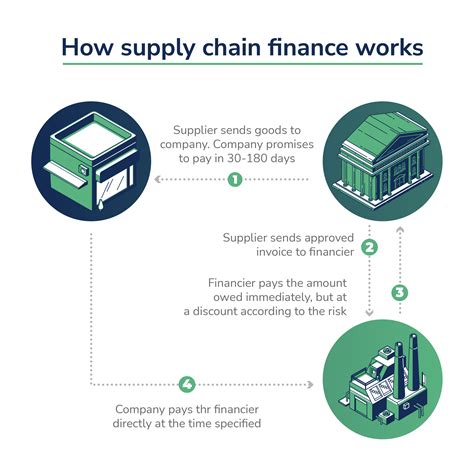Berikut adalah posting blog tentang manajemen keuangan dan rantai pasokan:
Finance and Supply Chain Management: A Recipe for Success
Supply chain management (SCM) and finance are two critical business functions that, when effectively integrated, can significantly boost a company's bottom line. While they might seem like separate entities, a strong understanding of the interconnectedness of these two areas is vital for optimizing operations, reducing costs, and driving profitability. This post will explore the key ingredients to successfully merging these two critical aspects of business management.
Understanding the Intertwined Nature of Finance and Supply Chain Management
The relationship between finance and supply chain management is symbiotic. Finance provides the resources and oversight, while supply chain management executes the strategies to optimize those resources. Effective collaboration necessitates transparency and clear communication.
How Finance Impacts Supply Chain Management:
- Funding: Finance provides the capital necessary for inventory, transportation, warehousing, and technology investments within the supply chain. Insufficient funding can lead to stockouts, delays, and ultimately, lost revenue.
- Risk Management: Financial teams analyze and assess supply chain risks, such as supplier defaults, natural disasters, or geopolitical instability. They help mitigate these risks through insurance, diversification strategies, and contingency planning.
- Performance Measurement: Financial metrics like inventory turnover, days sales outstanding (DSO), and return on investment (ROI) are crucial in evaluating the efficiency and profitability of the supply chain. These metrics guide decision-making and improvement initiatives.
- Investment Decisions: Finance plays a vital role in determining which supply chain technologies (e.g., warehouse management systems, transportation management systems) to invest in, ensuring that these investments align with the company's overall financial goals.
How Supply Chain Management Impacts Finance:
- Cost Reduction: An efficient supply chain can significantly reduce costs across various areas, such as inventory holding, transportation, and procurement. These savings directly impact the company's profitability and cash flow.
- Improved Cash Flow: Optimized inventory management reduces working capital needs, leading to improved cash flow. Faster order fulfillment and efficient payment processes further enhance cash flow management.
- Revenue Growth: A robust supply chain ensures timely delivery of goods and services, leading to increased customer satisfaction and revenue growth. Strong supplier relationships foster innovation and collaboration.
- Enhanced Profitability: The synergy between finance and supply chain management directly impacts the bottom line. Reduced costs, improved efficiency, and increased revenue all contribute to enhanced profitability.
Key Ingredients for a Successful Integration:
- Data Visibility: Real-time data visibility across the entire supply chain is paramount. This allows for accurate forecasting, efficient inventory management, and proactive risk mitigation. Integrated systems and data analytics are crucial.
- Strong Communication: Open and clear communication between finance and supply chain teams is essential. Regular meetings, shared reporting, and collaborative problem-solving are key.
- Shared Goals and KPIs: Aligning both teams towards common goals and Key Performance Indicators (KPIs) is crucial. This ensures that both functions are working towards the same overall objectives.
- Technology Integration: Investing in integrated systems that connect financial and supply chain data provides real-time insights and enables better decision-making.
- Collaborative Culture: Fostering a culture of collaboration and teamwork ensures that both finance and supply chain teams work together effectively.
The Recipe for Success: A Summary
Effective integration of finance and supply chain management requires careful planning, robust systems, and a collaborative approach. By understanding the intertwined nature of these functions and implementing the key ingredients outlined above, businesses can unlock significant value, enhance profitability, and achieve a competitive advantage. This recipe for success is not a one-size-fits-all solution, but rather a framework for building a strong, resilient, and highly profitable operation. Remember, continuous improvement and adaptation are essential in the dynamic landscape of modern business.
